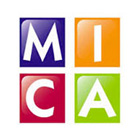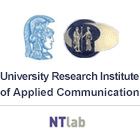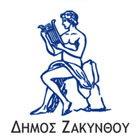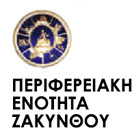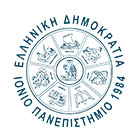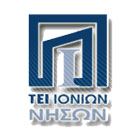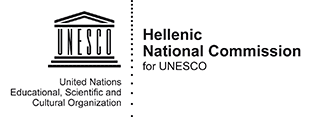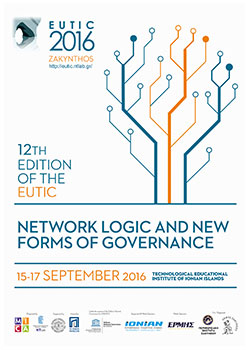About EUTIC
EUTIC CONFERENCE SERIES
11 conferences have been organized by the EUTIC research network, with a view to bringing forward the interdisciplinary character of research on the evolution of ICT. Today, the network is enriched with new participants and continues to explore the multiplicity of viewpoints treating the role of ICT in changes and transformations within organizations, society and culture.
Conference's official website: http://www.eutic.fr
EUTIC INTERNATIONAL CONFERENCES 2005-2015
| I 22 -23 September 2005 | Bordeaux (France) | Social and cultural aspects |
| II 13-15 September 2006 | Brussels (Belgium) | Social and professional integration |
| III 7-10 November 2007 | Athens (Greece) | Media and information diffusion: towards an open society |
| IV 23-25 October 2008 | Lisbon (Portugal) | Development dynamics at the cross-roads of worlds |
| V 18-20 November 2009 | Bordeaux (France) | Change strategies in systems and territories |
| VI 25-27 November 2010 | Dakar (Senegal) | The digital at the heart of partnerships |
| VII 23-25 November 2011 | Brussels (Belgium) | Transformation of organizations, evolution of agendas and functional mutations |
| VIII 17-19 October 2012 | Metz (France) | Publics and media practices |
| IX 23-25 October 2013 | Waterford (Ireland) | Engagement of publics and enterprises in a dynamic environment. The role of global networks |
| X 29-31 October 2014 | Lisbon (Portugal) | The role of ICT in information and cognitive process design |
| XI 3-4 November 2015 | Fort de France (Martinique) | Digital ecosystems and democratization of information |
EUTIC 2016
The European Multidisciplinary Research Network on the Challenges and Uses of Information and Communication Technologies (EUTIC) is glad to announce the 12th edition of the EUTIC International Conference, co-organized by MICA (France) and the University of Athens (Greece), supported by the Ionian University, in the Technological Educational Institute of Ionian Islands, Zakynthos Island on 15-17 September 2016.
NETWORK LOGIC AND NEW FORMS OF GOVERNANCE
Different types of organizations and human activities encounter today deep changes in their fundamental principles, due to the development of ICT (Information and Communication Technology). Technical evolution is accompanied by important changes in the governance practices of organizations, as well as in the production and diffusion of information.
From a classic viewpoint, the governance[ ] of an enterprise or an organization, private or public, consists in the application of appropriate means in order to achieve a number of set objectives[ ]. This includes the conception of strategic orientations, the elaboration of rules in order to realize them, the mobilization of material and human resources as well as the management of risks.
Whether designed for profit-making or not, the vast majority of human activities have operated for centuries according to hierarchical principles, based on the authority of some directing entity. In this line of thought, enterprises and organizations are structured in pyramid schemes, whereas flow of information is basically implemented through a top-down unidirectional model.
The explosion of ICT has largely contributed in the breaking up of such traditional schemes, facilitating interactions and transversal exchanges, notably with the appearance of blogs, wikis, forums as well as social networks whose different uses are always expanding. An increase can be observed in the power of crowdsourcing, based on the enactment of collaborative action. The logic of hierarchical and tree-like order is more and more leaving the grounds to network organizations, promoting bottom-up and transversal flows of information as well as participatory engagement. Whatever the organization of reference, it is no longer possible to treat users, domain actors, citizens in a fragmented way.
This state of things corresponds to what can be called new experience of new governance, referring to schemes that unify within the information and decision-making life-cycles both top-down and bottom-up flows. Publics, users, locals, citizens are no longer restricted to the role of a passive receiver, but need to be considered as fully-fledged actors that can participate in the elaboration of a project and bring in their expertise, based on their domain knowledge and on pragmatic aspects alike. In this line of thought, scientific knowledge and common knowledge complement each other and contribute to the same objective, even if at times the borders between those two types of experience can be stretched.
It is necessary to change our point of view on the value and effectiveness of decision-making. At times, pitfalls can arise in cases of delocalization, delegation, work from distance, with a risk of unwanted interference between public and private life. An important issue, therefore, is to assess the advantages and risks inherent in the changes brought about by the new types of organization. It is in the world of co-decision, consultation, co-management and exchange that we can find successful solutions for handling the complex situations that we are confronted with in everyday life.
On the premise that collective intelligence and diversity are two of the emerging values of our society, this 12th edition of the EUTIC international conference proposes to explore the relations that can be established between principles of systems, human and digital networks and the explosion of public expression favored by the increasing appeal of Web 2.0.
Submissions focusing on new forms of governance through digital networks are invited along the following non-exhaustive list of themes:
• Engagement, eco-citizenship and sustainable development
• Tourism networks and new media
• Societal evolutions and collective intelligence
• Democratization of expression spaces, media and social networks
• ICTs and public/political engagement
• Information systems and changes in the role of user experience, crowdsourcing
• New forms of governance, user experience and ergonomics
• Knowledge exchange and transfer, e-learning, e-publishing, MOOCs
• Networks and video games, serious games
• Internet of things, augmented reality, augmented humans
• Outsourcing, cloud computing
• Opening up of information spaces, open data, open archives
• ICT, cross-cultural and political debates
• Effectiveness of public action, new public management, open government




